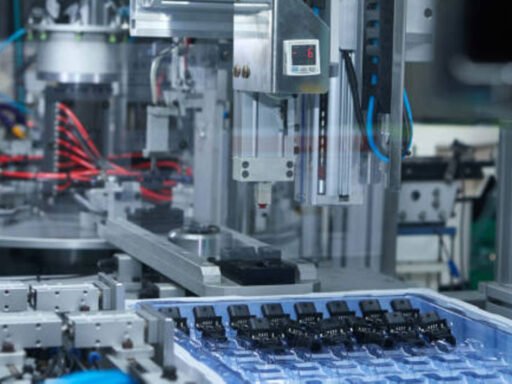In the tech industry, where innovation and efficiency are paramount, personal health and wellness can sometimes be overlooked. Yet, maintaining optimal health is crucial for sustaining high performance and enhancing creativity. For tech professionals, incorporating effective health and nutrition strategies into their daily routine can significantly boost cognitive functions, energy levels, and overall well-being. This article provides actionable tips designed to help tech workers integrate these practices seamlessly into their busy lives, ensuring they can stay at the top of their game.
1. Prioritize Hydration
Hydration is fundamental to maintaining brain function and energy levels, both critical for tech professionals who need to stay alert and focused. Dehydration can lead to fatigue, reduced concentration, and headaches, impacting productivity and the ability to solve complex problems. It’s advisable to keep a water bottle within reach at all times and possibly set reminders to drink water every hour. This constant hydration helps in maintaining mental clarity and preventing the dips in energy associated with dehydration.
2. Choose Smarter Snacks
Snacking is common in the tech world, where long hours and intense work sessions are regular. Choosing healthier snacks can prevent energy crashes and support sustained concentration. Incorporating products like those from Melaleuca, which are crafted to be natural and nutritious, can offer a better alternative to the usual vending machine fare. Melaleuca products, known for aligning with wellness goals while being convenient for busy professionals, provides options that are both healthy and satisfying, ensuring that tech workers can fuel their bodies correctly to match their minds.
3. Regular Physical Activity
Physical activity is often sacrificed due to demanding work schedules, but it is vital for reducing stress, enhancing mood, and improving overall health. For those strapped for time, integrating short bouts of exercise into the day can be effective. This could include standing stretches, yoga poses during breaks, or a quick midday walk. Even routine activities, like taking stairs instead of elevators, can add up and contribute to physical well-being. Setting up regular, short exercise sessions can be particularly effective, offering a break from the mental fatigue of screen time and boosting endorphins.
4. Manage Screen Time
Excessive screen time is a significant hazard for tech professionals, leading to eye strain and digital fatigue. Managing this involves disciplined breaks and conscious scheduling. Employing the 20-20-20 rule—every 20 minutes, taking a 20-second break to look at something 20 feet away—can help mitigate eye strain. Furthermore, adjusting the brightness and contrast of the screen to comfortable levels and using blue light filters can also reduce the harmful effects of prolonged exposure to digital screens.
5. Balanced Meals
Eating balanced meals that include a mix of carbohydrates, proteins, and fats can provide sustained energy throughout the day. For tech professionals, meal prepping on weekends can be a lifesaver, ensuring that even on the busiest days, they have access to nutritious meals. Simple, healthy recipes that can be prepared in bulk, like stir-fries with plenty of vegetables and lean proteins, or salads topped with nuts and seeds, are ideal. These meals not only provide necessary nutrients but also prevent the temptation to indulge in less healthy, convenience food options during a tight schedule.
6. Mindful Eating
Mindful eating involves paying full attention to the eating experience, focusing on the flavors, textures, and effects on the body, which is particularly beneficial in a fast-paced tech environment. This practice encourages tech professionals to slow down and savor their meals, which can aid digestion and prevent overeating by enhancing the recognition of hunger and fullness cues. Simple strategies such as eating away from the desk, turning off screens during meals, and chewing food thoroughly can promote more mindful eating habits.
7. Sleep Hygiene
Quality sleep is essential for cognitive function, mood regulation, and general health, yet it is often compromised in the tech industry due to irregular hours and high stress. Encouraging practices such as winding down with a book or meditation before bed instead of checking emails or coding can also help in transitioning to a restful state, promoting deeper and more restorative sleep.
8. Mental Health Breaks
Taking regular mental health breaks throughout the day can prevent burnout and maintain productivity. These breaks can include practices like meditation, deep-breathing exercises, or simply stepping outside for fresh air. Integrating these short pauses helps in resetting the mind, reducing stress levels, and keeping the workday manageable. Encouraging a culture where mental health is prioritized can lead to more sustainable work practices and healthier, happier employees.
9. Desk Ergonomics
Proper desk ergonomics plays a crucial role in preventing physical strain and discomfort, which are common in desk-bound professions. Setting up an ergonomic workspace involves adjusting chair height to ensure feet are flat on the floor, positioning monitors at eye level to avoid neck strain, and keeping keyboards and mice within easy reach to prevent overextension. Investing in ergonomic furniture and devices can aid in maintaining good posture and reducing the risk of chronic injuries such as carpal tunnel syndrome or chronic back pain.
10. Stay Informed About Nutritional Trends
Staying informed about the latest in nutrition can help tech professionals make educated choices about their health. Following reputable health blogs, subscribing to nutrition newsletters, and participating in wellness webinars can provide valuable insights into new dietary trends, superfoods, or breakthroughs in nutritional science. This ongoing education can empower individuals to continuously refine their diet and lifestyle choices, adapting to new information as science evolves.
In conclusion, integrating effective health and nutrition strategies into daily life is not just about enhancing personal well-being; it’s also about boosting professional performance and long-term career sustainability. By adopting practices such as mindful eating, maintaining proper sleep hygiene, managing stress through mental health breaks, ensuring ergonomic work conditions, and staying abreast of nutritional trends, tech workers can protect and enhance their most valuable asset—their health. These steps not only contribute to a more balanced life but also support enduring success in the demanding tech industry.





